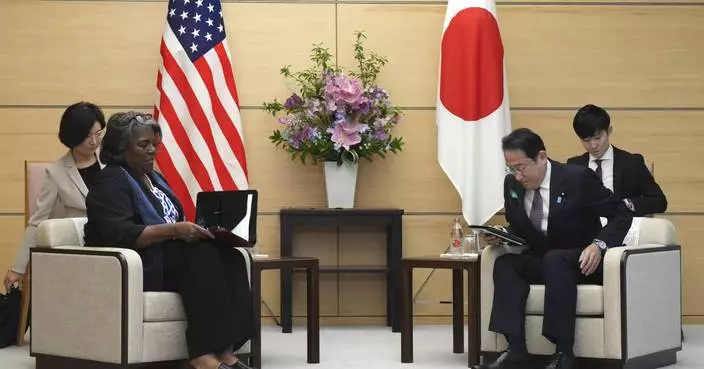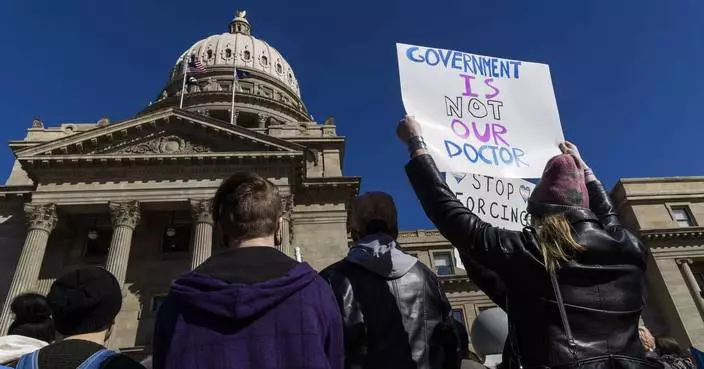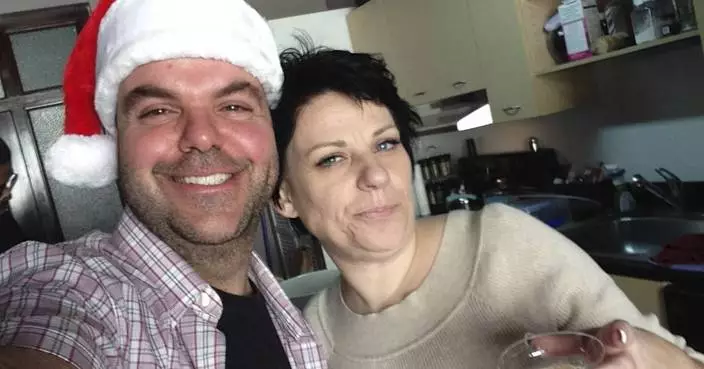About 11 percent of medicines in developing countries are counterfeit and likely responsible for the deaths of tens of thousands of children from diseases like malaria and pneumonia every year, the World Health Organization said Tuesday.
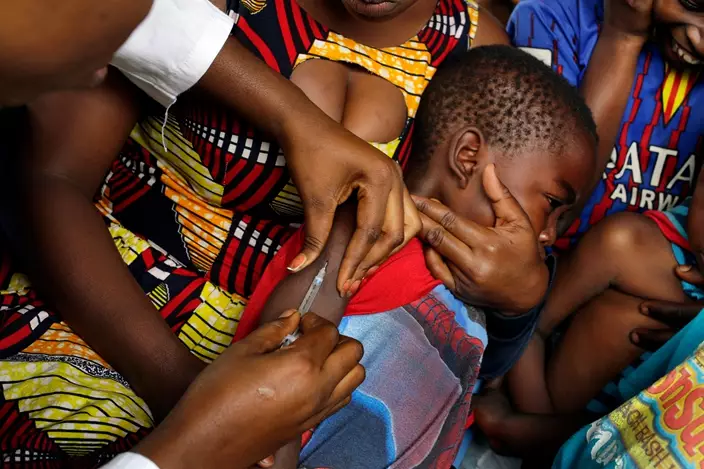
FILE - In this Thursday, July 21, 2016 file photo, residents of the Kisenso district receive yellow fever vaccines, in Kinshasa, Democratic Republic of Congo. (AP Photo/Jerome Delay, File)
It's the first attempt by the U.N. health agency to assess the problem. Experts reviewed 100 studies involving more than 48,000 medicines. Drugs for treating malaria and bacterial infections accounted for nearly 65 percent of fake medicines.
WHO's director-general said the problem mostly affects poor countries. Between 72,000 and 169,000 children may be dying from pneumonia every year after receiving bad drugs. Counterfeit medications might be responsible for an additional 116,000 deaths from malaria mostly in sub-Saharan Africa, according to scientists at the University of Edinburgh and London School of Hygiene and Tropical Medicine commissioned by the WHO.
"Imagine a mother who gives up food or other basic needs to pay for her child's treatment, unaware that the medicines are substandard or falsified, and then that treatment causes her child to die," WHO chief Tedros Adhanom Ghebreyesus said in a statement. "This is unacceptable."
Counterfeit drugs include products that have not been approved by regulators, fail to meet quality standards or deliberately misrepresent an ingredient, according to WHO, which published the two reports.
In 2013, WHO set up a voluntary global monitoring system for substandard and fake drugs and has received reports of about 1,500 problematic medicines including drugs that claim to treat heart problems, diabetes, fertility problems, mental health issues and cancer. WHO also reported problems of fake vaccines for diseases including yellow fever and meningitis.
WHO credited the database with saving the lives of several dozen children in Paraguay after an analysis showed they were affected by a contaminated drug contained in a cough medicine that had killed 60 adults in Pakistan several months earlier in 2013.
WHO said the cases of fake medicines it found are only "a small fraction" and that problems may be going unreported. The agency estimated countries are spending about $30 billion on counterfeit drugs.
UNITED NATIONS (AP) — The year-old war in Sudan between rival generals vying for power has sparked “a crisis of epic proportions” fueled by weapons from foreign supporters who continue to flout U.N. sanctions aimed at helping end the conflict, the U.N. political chief said Friday.
“This is illegal, it is immoral, and it must stop,” Undersecretary-General Rosemary DiCarlo told the U.N. Security Council.
Sudan plunged into chaos in mid-April 2023, when long-simmering tensions between its military, led by Gen. Abdel Fattah Burhan, and the Rapid Support Forces paramilitary commanded by Mohammed Hamdan Dagalo broke out into street battles in the capital, Khartoum. Fighting has spread to other parts of the country, especially urban areas and the western Darfur region.
DiCarlo painted a dire picture of the war’s impact — over 14,000 dead, tens of thousands wounded, looming famine with 25 million people in need of life-saving assistance, and over 8.6 million forced to flee their homes.
Mohamed Ibn Chambas, chair of the African Union panel on Sudan and high representative for its Silence the Guns in Africa initiative, called external interference “a major factor compounding both the efforts to negotiate a cease-fire and to stop the war.”
“As a matter of fact, external support in terms of supply of war materiel and other needs has been the main reason why this war has lasted so long,” Chambas said. “It is the elephant in the room.”
Neither DiCarlo nor Chambas named any of the foreign supporters.
But Burhan, who led a military takeover of Sudan in 2021, is a close ally of neighboring Egypt and its president, former army chief Abdel-Fattah el-Sissi. In February, Sudan’s foreign minister held talks in Tehran with his Iranian counterpart amid unconfirmed reports of drone purchases for government forces.
The Rapid Support Forces' leader, Dagalo, has reportedly received support from Russia’s Wagner mercenary group. U.N. experts said in a recent report that the RSF has also received support from Arab allied communities and new military supply lines running through Chad, Libya and South Sudan.
The Arab-dominated RSF has carried out brutal attacks in Darfur on ethnic African civilians, especially the ethnic Masalit, and has taken control of most of the vast region.
Its newest target appears to be El Fasher, the capital of North Darfur. Edem Wosornu, the U.N. humanitarian office’s director of operations, said RSF-affiliated militias attacked and burned villages west of El Fasher on April 13.
“Since then, there have been continuing reports of clashes in the eastern and northern parts of the city, resulting in more than 36,000 people displaced,” she told the council.
Wosornu warned that “the violence poses an extreme and immediate danger to the 800,000 civilians who reside in El Fasher, and it risks triggering further violence in other parts of Darfur — where more than 9 million people are in dire need of humanitarian assistance.”
Two decades ago, Darfur became synonymous with genocide and war crimes, particularly by the notorious Janjaweed Arab militias, against populations that identify as Central or East African.
That legacy appears to have returned, with the International Criminal Court’s prosecutor, Karim Khan, saying in late January there are grounds to believe both sides may be committing war crimes, crimes against humanity or genocide in Darfur.
The RSF was formed from Janjaweed fighters by former Sudanese President Omar al-Bashir, who ruled the country for three decades before being overthrown during a popular uprising in 2019. He is wanted by the International Criminal Court on charges of genocide and other crimes during the conflict in Darfur in the 2000s.
DiCarlo called for redoubled efforts to bring peace, saying U.N. Secretary-General Antonio Guterres’ personal envoy for Sudan, Ramtane Lamamra, has proposed convening a meeting with African and Arab organizations and key countries “to develop a comprehensive mediation and peacemaking strategy.”
Chambas said the AU is appealing to countries in the region not to support either side.
It is also organizing “an all inclusive political dialogue for Sudanese that will prepare the civilians for post-war transition to democratic governance,” he said.
“The war has set the country back several decades and it will take more than a generation to rebuild Sudan to its pre-war state,” Chambas said.
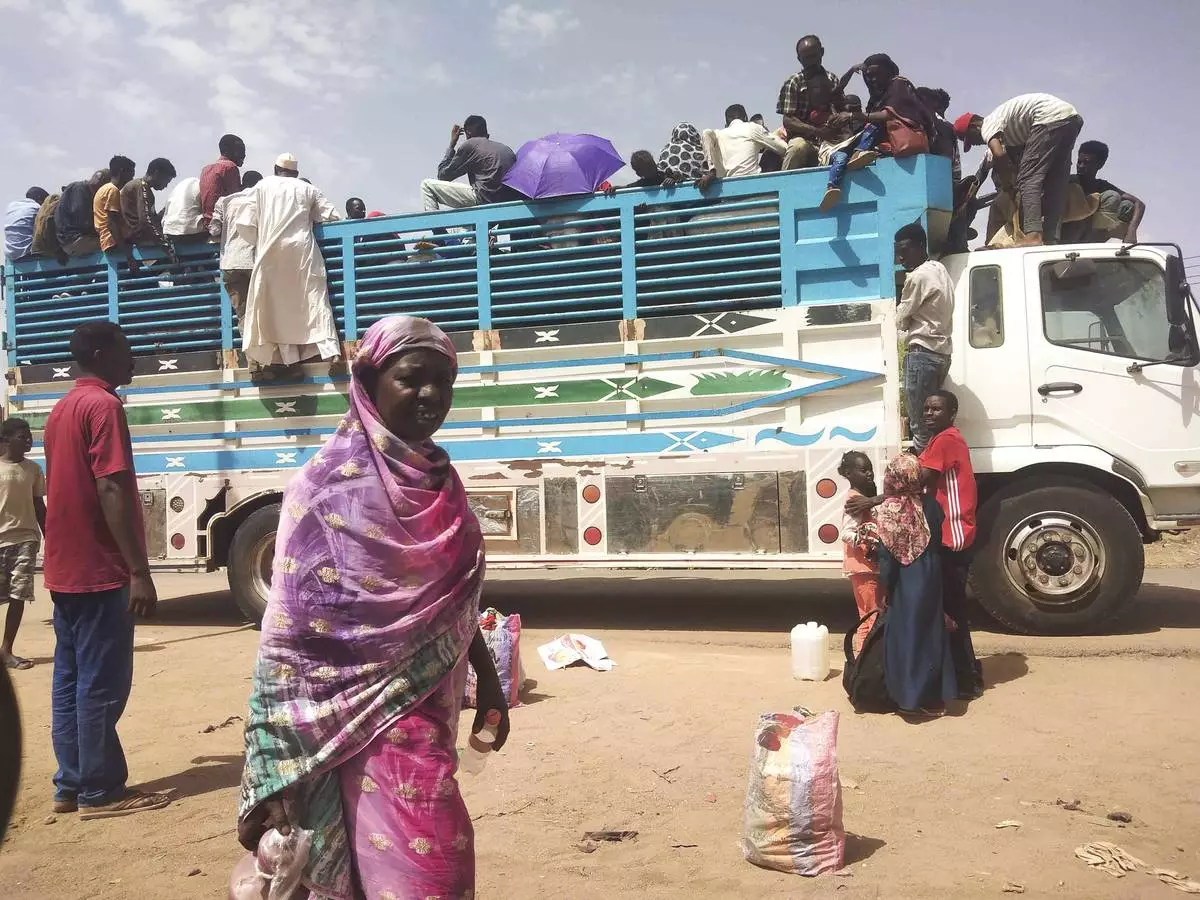
FILE - People board a truck as they leave Khartoum, Sudan, on June 19, 2023. Sudan has been torn by war for a year now, torn by fighting between the military and the notorious paramilitary Rapid Support Forces. (AP Photo, File)
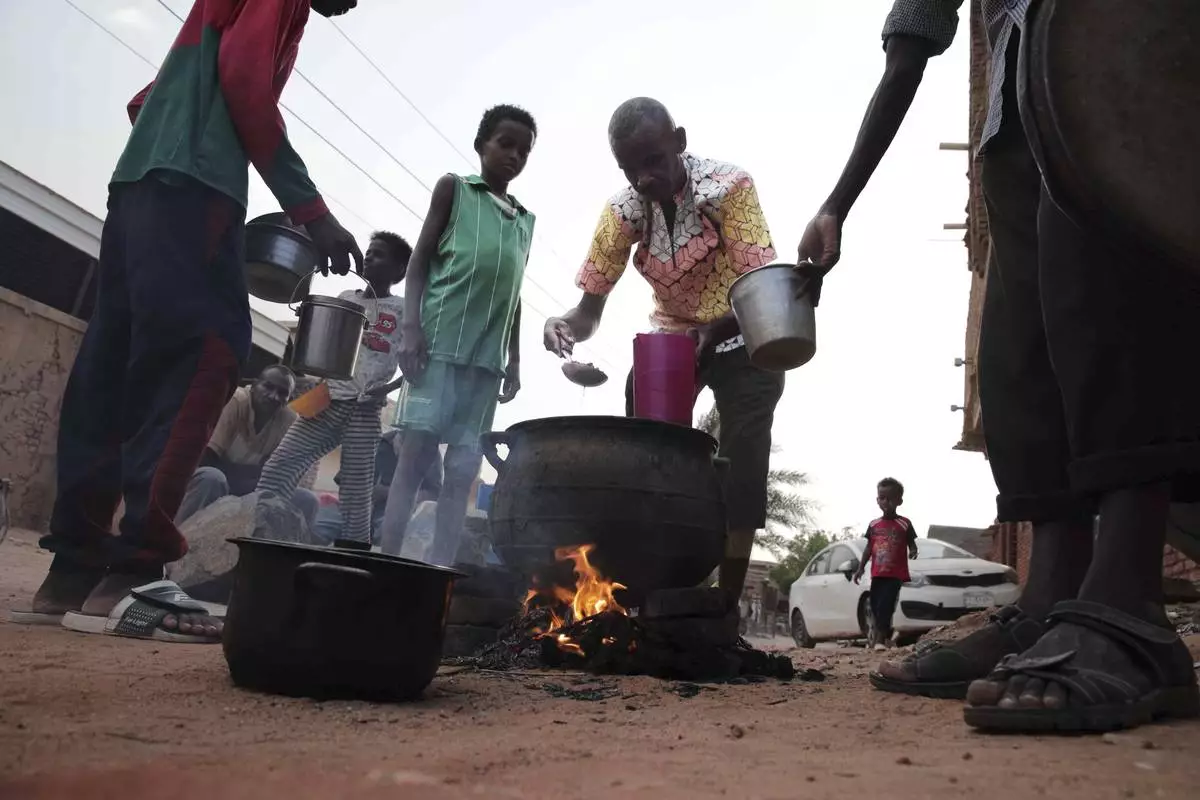
FILE - People prepare food in a Khrtoum neighborhood on June 16, 2023. Sudan has been torn by war for a year now, torn by fighting between the military and the notorious paramilitary Rapid Support Forces. (AP Photo, File)
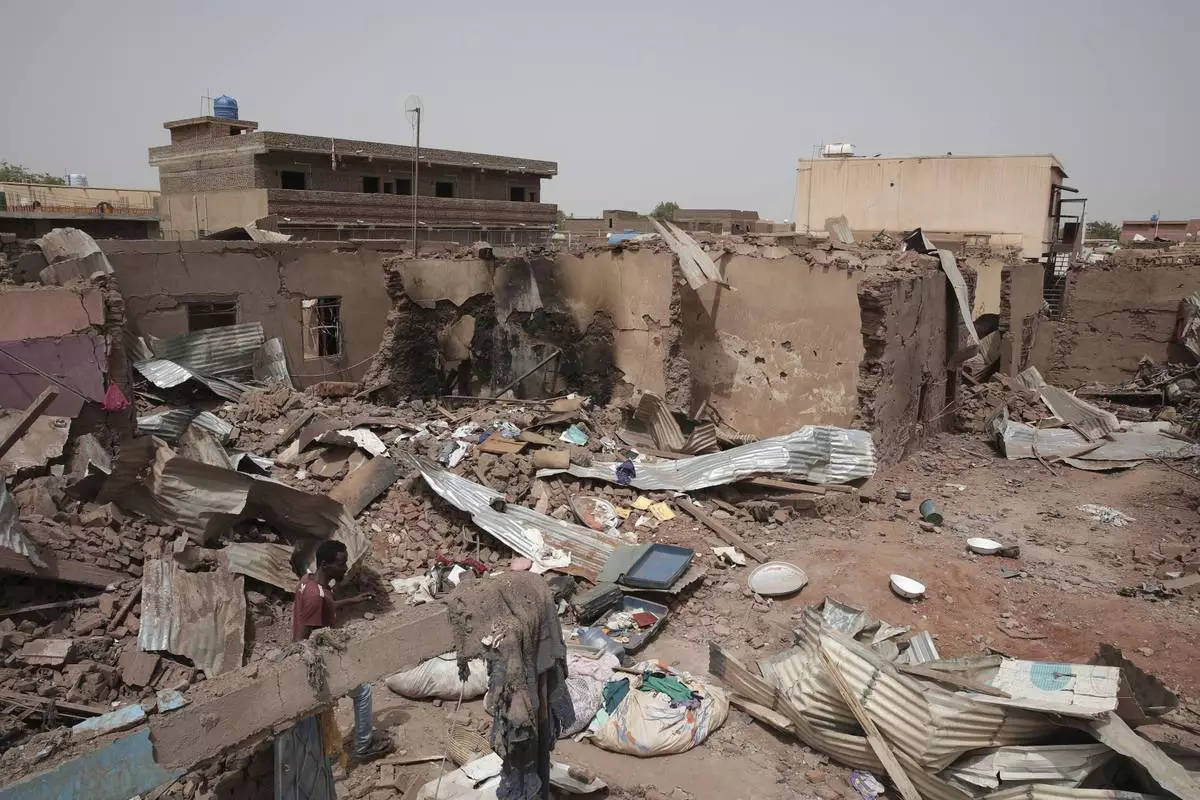
File - A man walks by a house hit in recent fighting in Khartoum, Sudan, Tuesday, April 25, 2023. Sudan has been torn by war for a year now, torn by fighting between the military and the notorious paramilitary Rapid Support Forces. (AP Photo/Marwan Ali, File)

File - Sudanese Children suffering from malnutrition are treated at an MSF clinic in Metche Camp, Chad, near the Sudanese border, Saturday, April 6, 2024. Sudan has been torn by war for a year now, torn by fighting between the military and the notorious paramilitary Rapid Support Forces. (AP Photo/Patricia Simon, File)








